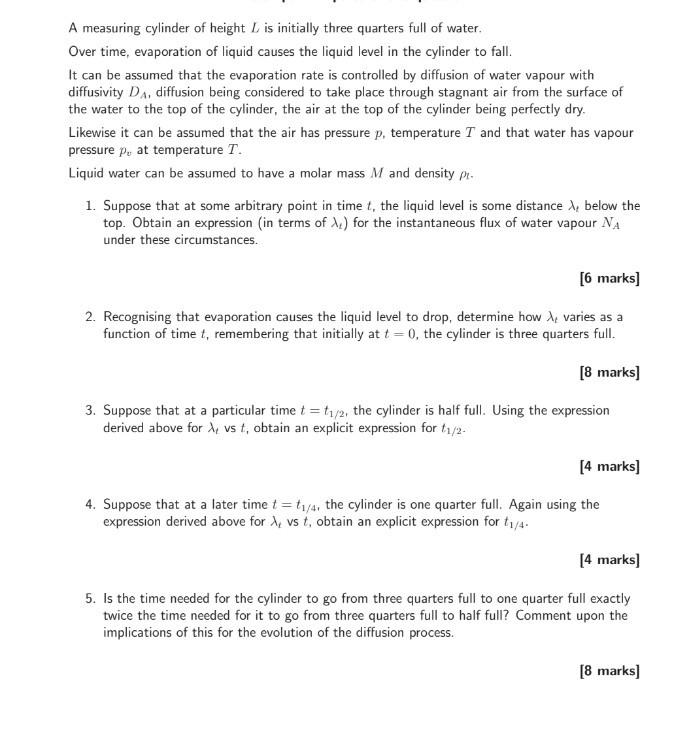Answered step by step
Verified Expert Solution
Question
1 Approved Answer
A measuring cylinder of height L is initially three quarters full of water. Over time, evaporation of liquid causes the liquid level in the cylinder

A measuring cylinder of height L is initially three quarters full of water. Over time, evaporation of liquid causes the liquid level in the cylinder to fall. It can be assumed that the evaporation rate is controlled by diffusion of water vapour with diffusivity DA, diffusion being considered to take place through stagnant air from the surface of the water to the top of the cylinder, the air at the top of the cylinder being perfectly dry. Likewise it can be assumed that the air has pressure p, temperature T and that water has vapour pressure pv at temperature T. Liquid water can be assumed to have a molar mass M and density l. 1. Suppose that at some arbitrary point in time t, the liquid level is some distance t below the top. Obtain an expression (in terms of t ) for the instantaneous flux of water vapour NA under these circumstances. [6 marks] 2. Recognising that evaporation causes the liquid level to drop, determine how t varies as a function of time t, remembering that initially at t=0, the cylinder is three quarters full. [8 marks] 3. Suppose that at a particular time t=t1/2, the cylinder is half full. Using the expression [4 marks] 4. Suppose that at a later time t=t1/4, the cylinder is one quarter full. Again using the expression derived above for t vs t, obtain an explicit expression for t1/4. [4 marks] 5. Is the time needed for the cylinder to go from three quarters full to one quarter full exactly twice the time needed for it to go from three quarters full to half full? Comment upon the implications of this for the evolution of the diffusion process
Step by Step Solution
There are 3 Steps involved in it
Step: 1

Get Instant Access to Expert-Tailored Solutions
See step-by-step solutions with expert insights and AI powered tools for academic success
Step: 2

Step: 3

Ace Your Homework with AI
Get the answers you need in no time with our AI-driven, step-by-step assistance
Get Started


